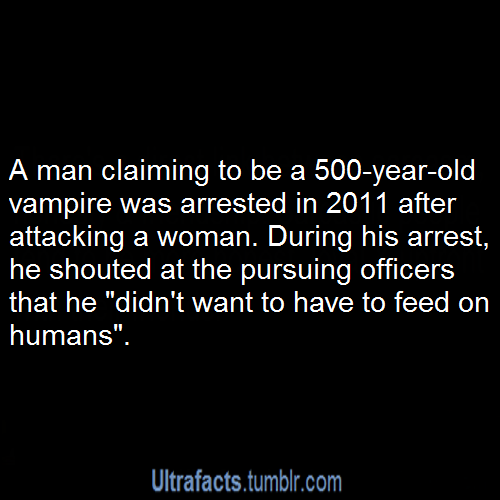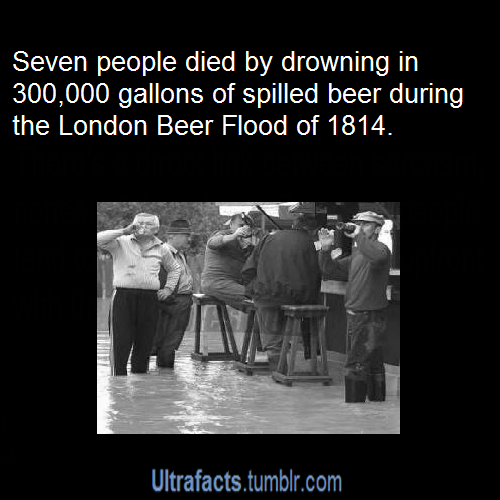Archive for year 2014
Funeral Etiquette for Cell Phones

Cell phones often go off when we least want them to. In church. In school. During sex. And at a funeral. As other funeral directors can attest, the oddest thing about a cell phone ringing during funerals is how many people will actually answer.
“Hello. Yeah. I’m at a funeral service. Can I call you back?”
A funeral director friend once told me that the pastor’s cell phone rang while he was giving the funeral message. He answered it. Confirmed the time for his afternoon golf outing. Hung up and continued on with the service. The family – according to the funeral director – was “pissed.”
If you’re attending a funeral, the best piece of advice I can give you is this: Turn your phone off.
Simple.
But, they aren’t JUST phones. And it isn’t that simple. Funerals also double as family reunions. So, you pull you phone out. Show off your recent photos of your children and your relatives “oh” and “ah” about how much your children look like a young version of your great uncle Ned.
If you keep your phone on, turn it to — preferably — silent and — at least — buzzer.
Is it appropriate to text?
During a viewing and/or visitation, yes. During a funeral, probably not.
As with talking on your cell phone, if you’re going to text it would be polite to step outside or to a discreet area of the funeral home. Sexting, though, is off limits at any time during a funeral.

Can I take a photo of Aunt June laying in her casket?
That’s up to Aunt June’s next of kin. And when you ask, ask before the viewing starts. People aren’t always able to think straight during a viewing, so the polite thing to do is ask while they’re thinking straight … which is before and not during.
Don’t just take a photo like this guy:
I’m bringing the kids to the funeral. Can they play “Angry Birds”?
It’s common sense, but turn the sound off. Everyone else doesn’t need to hear screaming birds and snorting pigs. And, it’s probably NOT appropriate for them to play during the funeral.
“We’re gathered here today to remember the tragic loss of ______” At which time your kid yells “yes” as he overcomes a level that’s taken him a combined 1,000 birds to clear. Not cool.
Also, video. If your children want to watch video on your cell. Either find a separate place that’s out of the way for them to watch. Or, get them to wear headphones.
What do I do when somebody else is breaking funeral cell phone etiquette?
The biggest culprits for committing funeral cell crimes are old men and women who aren’t cell phone savvy. Their phone rings in the middle of the service and they frantically pull it out of their pocket or purse and start hitting buttons. After finding the “silence” button, they breath a sigh of releif ONLY to have their phone start ringing again a minute later.
At this point they start muttering. And it’s at this point someone should step in because if you don’t their next action will be to turn it off, which will only create another loud “turning off” noise and more muttering.
The difficulty isn’t with the cell phone newbies, it’s with the cell phone addicted. The young people. And when young people commit cell phone faux pas, and you can tell that it’s annoying people around them, you have to confront them.
“Excuse me. Can you please turn your cell phone off?” Then wait until they turn it off. That’s what I do.
And if they don’t turn it off, pray for cell phone karma (example of cell phone karma in the video below)
A Quick Video on the Embalming Process
11 Reasons You Need to Think about Your Death RIGHT NOW
One. Paul Blart.
Two weeks ago we had a family that was verbally fighting over “what mom wants” for her funeral. The fighting got so intense that one side actually brought a security guard with them to the funeral.
Don’t have Paul Blart security guards at your funeral. Determine what you want at your funeral now so your family doesn’t fight over it later.
Two. The Cyborg Death.
Thinking about your death now, also makes us think about how we die. Do you want to die with tubes hooked into your body, being sustained indefinitely by machines while your body lives on in a semi vegetative state? I don’t. And I’ve made it clear that I don’t. If you want the cyborg death and you don’t want anyone “pulling the plugs”, that’s fine … but either way you should probably make it official by creating a LIVING WILL.
Three. Breast Augmentation.
That legal document (called “a will” or “testament”) that makes sure your stuff doesn’t somehow end up funding your ex-husband’s new trophy wife’s breast augmentation is important to do BEFORE you die.
Four. Your debts don’t pay off themselves.
And if all the stuff you have is debt and darkness and you don’t want to leave your parents paying for your college or your children paying for your house, you may want to think about term life insurance. Unlike General Motors, you don’t receive a bailout when you die.
Five. Because you don’t know the difference between an executor and a power of attorney.
Six. The Stupid Tax.
Because the less you think about death (your own death and the death of your loved ones), the more likely you’ll be hit hard with the stupid tax.
The stupid tax applies to funerals: Did you know that if you can save money by planning for a natural burial and/or a home funeral?
Seven. This.
Eight. You Can Be a neo-Zombie.
One organ donor can save up to eight lives. So, be an organ donor and pieces of you will be walking around long after you’re gone. You’ll be like a Zombie, but a living one … which is cooler. It’s like a neo-Zombie.
Nine. Fido Doesn’t Want to be Euthanized
You have godparents for your kids. But do you have godparents for your pets? Make sure someone is there to take care of your animals because if no one steps up they could go to the rescue. And while nobody at the rescue wants to euthanize Fido, sometimes it has to happen.
Ten. Dying Makes You Drunk
I know. You’re not dying right now. And Death probably isn’t scheduled into your calendar anytime soon. But you think, “I’ll probably die of cancer at an older age and then I’ll get my house in order. I’ll write my will, I’ll determine my Living Will, I’ll name my power of attorney and executor, I’ll make my prearrangements for my funeral, etc. etc.”
There’s a slight problem with that line of thinking. Dying kind of makes you drunk. Not drunk in the “let’s have a good time” sense, but drunk in the “I really shouldn’t be making big decisions right now” sense. Dying often changes us. And it often prompts us to make less than objective decisions.
So, if you want to leave all those big decisions up to drunk you, go ahead. Just let me know, so I can take your money. Bwhahahaha.
Eleven. Life.
Because the more you think about death, the more you realize that all of this has an end. And the more you realize that you, your parents, you friends and your family will eventually die, the more you can embrace this precious thing called life.
By embracing death, we embrace life.
Joining in Empathy: A Story about Being More than a Funeral Director
A couple years ago we had a late night house call. My grandfather and I drove up to the house and an uncle came outside of the house to meet us, explaining the situation we were about to enter.
“You guys are here for my niece, Sara.
She’s 16 years old.
Been fighting cancer for four years.
She’s in the living room with her mother, Joan.”
We entered the house, walked to the living room and were greeted by about 20 family and friends who were scattered all over the living room, some sitting, and some standing, others laying on the floor.
It was late. Or early. 2 AM. Time gets confused by death.
When a terminal person is dying under home care it’s normal for a hospital bed to be temporarily set up in a large room, enabling larger groups to visit the dying. In this case, the bed was in the living room, but the deceased wasn’t lying on it; which was very unusual. We allowed them time to explain who Sara was, what she meant to them. All families need this time.
They need to believe that through their stories Sara could be incarnated in us, so that we could love her the same … so that we could become a part of their family. Once we’re apart of “the family”, we no longer represent a cold funeral director, but a tender caregiver.
After their stories, we asked them if they were ready for us to make our removal. They confirmed that they had all said their last “good-bye”.
And then we asked, “Where is Sara?”
“She’s here”, said Joan the mother. And then we saw her. When we first walked into the living room we saw a small girl being held by Joan. The girl looked to be around ten years old, and being that it was late we just assumed that this was one of Sara’s younger sisters who had fallen asleep in Joan’s arms. But, it turned out, Sara had died in her mother’s arms and there she laid. A small pile of bones, large enough to fill a whole room.
Like the transfer of a sleeping child from one adult to the next, I got down on my knees, slide my arms under Sara’s head and thighs, lifted her starved body out of her weeping mother’s lap and carried her to our stretcher. The room was full. Full of love. Full of grief. Full of tears. And I was a part of it all.
Empathy.
I tell you this story because I want to make a distinction between empathy and sympathy. Let me explain the difference:
Imagine being at the bottom of a deep, dark hole. Peer up to the top of the hole and you might see some of your friends and family waiting for you, offering words of support and encouragement. This is sympathy; they want to help you out of the pit you have found yourself in. This can assist, but not as much as the person who is standing beside you; the person who is in that hole with you and can see the world from your perspective; this is empathy. — Dr Nicola Davies
There are times (at funerals especially) when all we can give is sympathy. When it’s outside of our ability to fully empathize with a person’s situation. After all, the person laying in the casket isn’t my father. This isn’t my daughter. This isn’t my family.
And that’s our job. You pay us to be directors. You pay us to be the stable minds in the midst of unstable souls. And we couldn’t handle much more. We have to maintain a certain level of objectivity because there’s only so much pain, grief and heartache we can share until we too start to crash … burn out.
But, there’s other times when you can’t help but be drawn into the narrative, so that you enter the narrative and become a character in the story. Not just a director, but an actual character in the drama of life and death.
We touch the core of our profession when we enter the narrative and become part of the story … when we become more than directors … when we become part of the family.



















